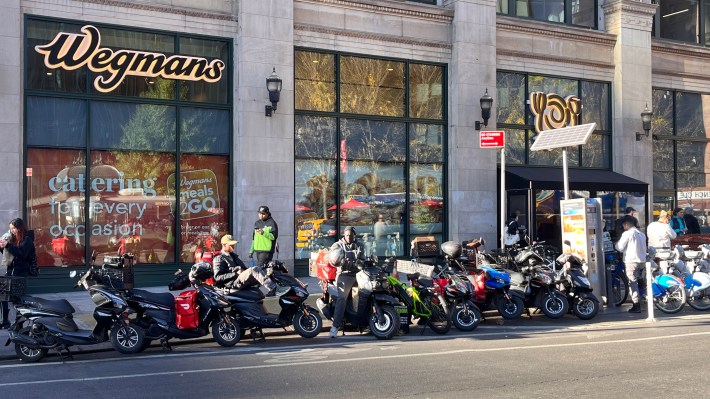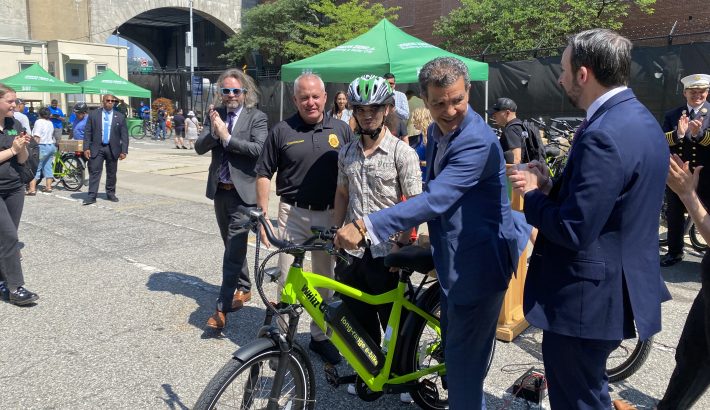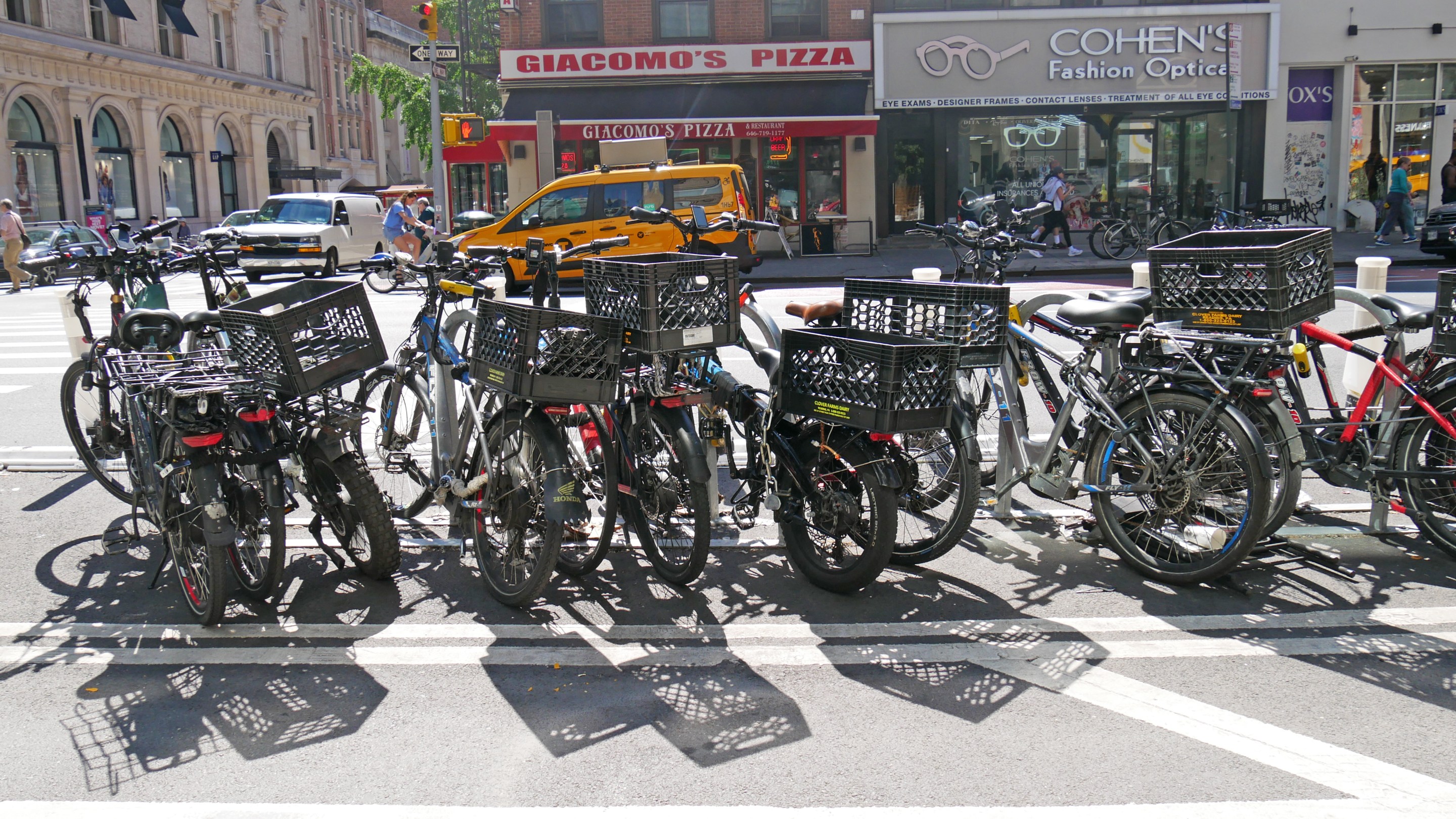Delivery app companies will have to provide their workers with certified e-bikes — or underwrite their access to them — thanks to a Council bill set to pass on Monday, Streetsblog has learned.
The bill, sponsored by Council Member Oswald Feliz (D–Fordham), is a watered down version of an original proposal that sought to force the billion-dollar corporations to provide safe and compliant e-bike to each of their contract workers for free.
The new version allows the companies to get out of the requirement by funding e-bike trade-in programs or subsidizing membership in an electric bike-share or equipment service, such as Whizz, Joco, or PopWheels. As a result, the bill would lead to tens of thousands of workers getting new certified bikes or access to same for free.
The compromise is being praised by at least one player in the biz.
“The Council member and the advocates and the staff that worked on [the bill] listened to everyone and found what is really an incredible compromise,” said Josh Gold, Uber's senior director of policy and communications.
Gold hopes the bill will shift workers from gas powered mopeds, which are heavier and more dangerous, to the lighter and more environmentally friendly e-bikes.
“At the end of the day what this will do is give [workers] access to inexpensive or free compliant devices, and move away from gas mopeds,” he said.

And battery-swap companies are excited about the potential new law too, considering using a compliant bike with an unsafe, uncertified battery is still a fire risk.
“We look forward to partnering with delivery platforms and city leaders to build compliance pathways that continue to move uncertified batteries out of residential buildings and grant workers access to safe, outdoor charging infrastructure," said Ben Rosenn, Manager of Deployments and External Affairs at PopWheels, which just opened a new battery swap site in Lower Manhattan.
The road to compromise wasn’t easy. When the bill was introduced in 2023, it called for app delivery companies to provide every worker with a certified-safe e-bike. As a result, Uber, DoorDash, and GrubHub were adamantly opposed.
At the most recent hearing last June, the three largest app companies were still against the bill on the grounds that the delivery worker minimum wage already underwrote the cost of equipment.
“There’s already $2.26 built into the minimum wage which is supposed to go for this exact type of thing: safety equipment,” Joshua Bocian of Grubhub testified at the hearing. "For us it feels like we’re getting hit twice. We’re not sure the bill is quite ready yet and perhaps we need some additional conversation."
He also argued that many workers work for multiple apps.
"If you deliver for all three of our companies, how many e-bikes do you get?" he asked.
But the amended bill gives companies different options for compliance and more time to make changes, while also bringing in all types of delivery apps, such as grocery delivery like Instacart (which is still not included in the city’s minimum wage).
Breaking it down
The amended law keeps part of the original intent: Any “powered” micro mobility device used by a delivery worker on behalf of an app company will need to meet safety requirements defined by the law, and the onus of meeting those requirements falls on the app company. A worker can't be deactivated for not having a bike that meets the requirements.
But in a new provision, companies can get out of being forced to buy all workers new bikes by either funding a trade-in program that provides a portion of workers with free or low cost compliant bikes, or by subsidizing a subscription program for some of its workers to have access to compliant equipment.
So, by funding a trade-in program, companies with more than 5,000 workers will have to provide 8,000 bikes – 1,200 per year, while smaller companies will have to fund 2,500 bikes – 500 per year. After that, the company’s compliance with the law is considered complete.
And for the subscription model, participation is complete when at least 52 weeks of access to a subscription membership is obtained or by at least half of all contracted delivery workers retained by the app.
The law doesn't specify how much of a "reduced cost" the app companies need to provide, and the big three – Doordash, Grubhub, and Uber – all already have programs that offer discounts to subscription services Whizz, Joco, and Zoomo respectively, so it remains to be seen exactly how much this law will change the status quo.

The bill's passage comes as the Department of Transportation is in the midst of its own long-awaited e-bike trade-in pilot, which will give 400 certified e-bikes to workers who trade in a non-compliant e-bike or an illegal moped.
The program has been praised as a success, but only covers a tiny fraction of the estimated 80,000 total app-based delivery workers in the city. Now, with the upcoming passage of Intro 30, more workers will be able to take advantage of these kinds of programs.
Neither Feliz nor Los Deliveristas Unidos responded to a request for comment.






